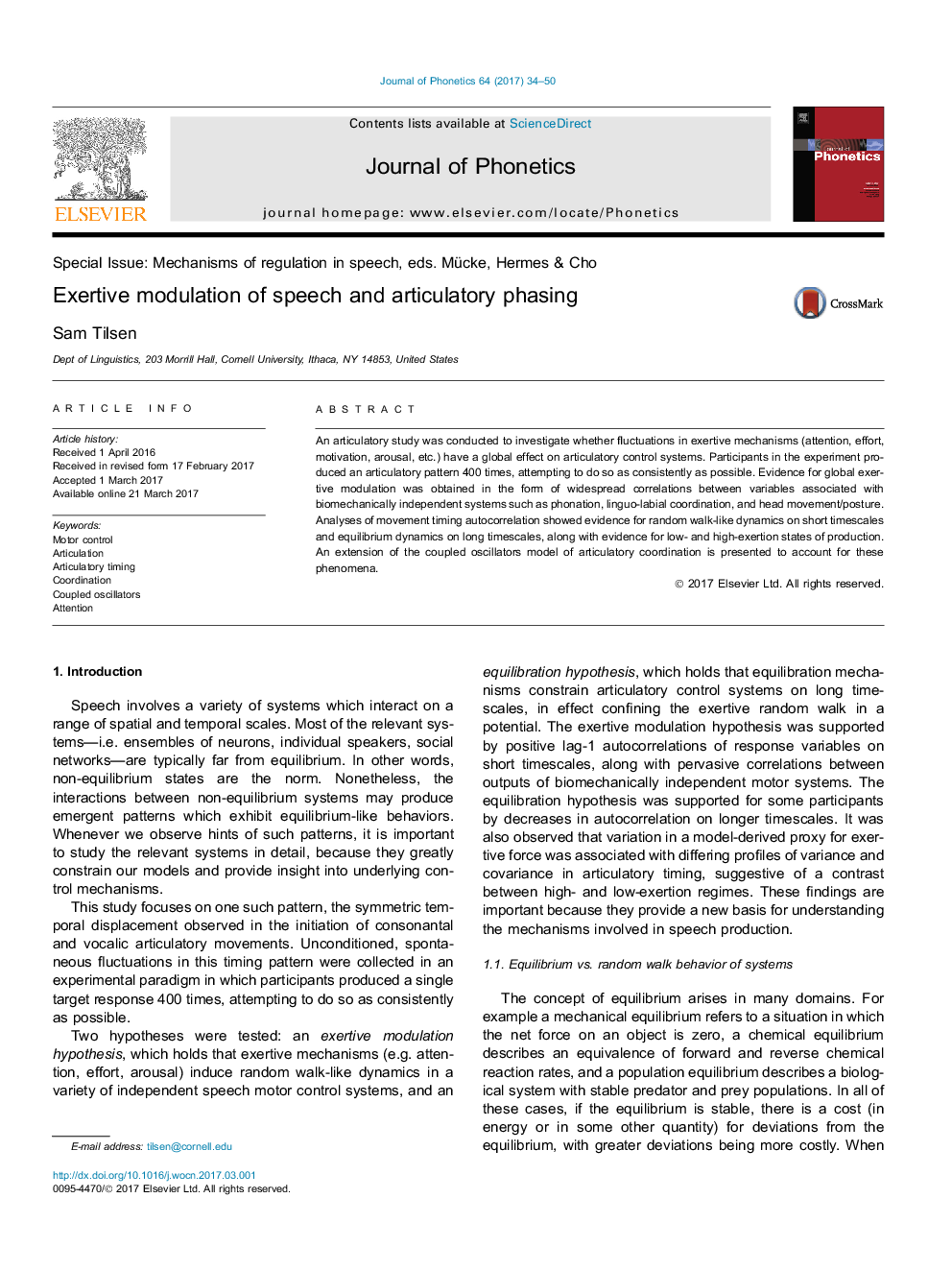| Article ID | Journal | Published Year | Pages | File Type |
|---|---|---|---|---|
| 5124054 | Journal of Phonetics | 2017 | 17 Pages |
â¢Fluctuations in exertive mechanisms have a global effect on articulatory control.â¢Pervasive correlations were observed between independent systems.â¢Movement timing has random walk-like dynamics on short timescales.â¢Evidence was found for low- and high-exertion states of production.
An articulatory study was conducted to investigate whether fluctuations in exertive mechanisms (attention, effort, motivation, arousal, etc.) have a global effect on articulatory control systems. Participants in the experiment produced an articulatory pattern 400 times, attempting to do so as consistently as possible. Evidence for global exertive modulation was obtained in the form of widespread correlations between variables associated with biomechanically independent systems such as phonation, linguo-labial coordination, and head movement/posture. Analyses of movement timing autocorrelation showed evidence for random walk-like dynamics on short timescales and equilibrium dynamics on long timescales, along with evidence for low- and high-exertion states of production. An extension of the coupled oscillators model of articulatory coordination is presented to account for these phenomena.
